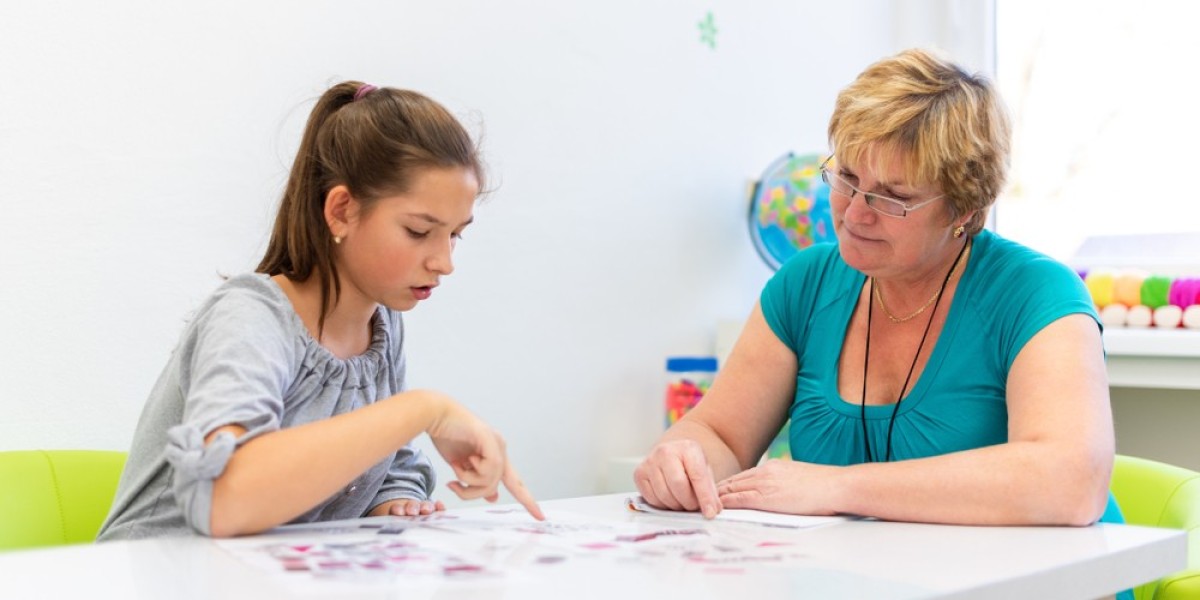Mental health is almost never a one-dimensional problem. Children, teenagers, and adults usually have overlapping problems that impact not only emotional health, but also physical well-being and school performance. Therefore, integration across disciplines is critical. Psychotherapists in Toronto are now working more collaboratively with physicians, educators, and behaviour consultants to offer integrated, client-focused care.
This collaborative model guarantees that care plans transcend solitary interventions. Rather, they encompass the complete range of a client's needs mental, physical, and educational, and lead to improved outcomes and resilience over the long term.
Why Holistic Care Matters in Mental Health
Holistic care addresses people as complete individuals instead of disparate cases. It accepts that mental health is affected by physical health, school settings, family structures, and other aspects of societal life.
Key Benefits of a Holistic Approach:
Early Recognition of Problems: Teachers can recognize changes in behavior prior to parents or physicians.
Comprehensive Support: Physicians bring medical expertise, while psychotherapists implement evidence-based treatments.
Consistency Across Environments: When teachers, therapists, and physicians collaborate, children hear consistent messages and receive support.
Less Stigma: Collaborative care de-stigmatizes therapy, as it becomes part of a broader system of health and learning support.
For Toronto psychotherapists, teamwork is not a choice, it's a requirement for providing high-quality care in a culturally diverse city with complicated mental health challenges.
The Psychotherapist's Role on Interdisciplinary Teams
Psychotherapists contribute specific skills to multidisciplinary care:
Clinical Acumen: Finding underlying conditions like anxiety, depression, or trauma.
Behavioural Techniques: Education on coping strategies and cognitive restructuring of negative thought processes.
Family Systems Perspective: Learning how family environments affect well-being.
Advocacy: Facilitating clients gaining access to further resources within schools or the healthcare system.
Within collaborative work, Toronto psychotherapists act as a liaison between the medical and school environments, taking psychological theory and breaking it down into workable suggestions for educators and doctors.
Collaboration Among Psychotherapists and Physicians
Shared Goals
Physicians and psychotherapists both work toward supporting overall well-being. Physicians address the biological foundations e.g., hormonal imbalances, chronic disease, or neurologic disease—while psychotherapists handle emotional and cognitive functioning.
Practical Collaboration
Coordinated Care Plans: In the case of clients with ADHD, medication can be prescribed by a physician and behavioural intervention by a psychotherapist.
Treatment of Co-occurring Disorders: Take the case of a client with diabetes and depression. The client can be treated through combined plans to address both disorders.
Referrals and Feedback: Doctors typically refer patients to therapy, and psychotherapists offer feedback that informs treatment choices.
This model guarantees that clients receive a smooth integration of medical and psychological input.
Collaboration Between Psychotherapists and Teachers
Shared Goals
Teachers desire students to prosper educationally, whereas psychotherapists aim for emotional control and mental health. Both contribute to the learning environments where students are safe and helped.
Real-World Collaboration
School Behavioural Interventions: A behaviour consultation expert might work with teachers to develop classroom interventions for pupils having difficulties with attention or aggression.
Individualized Education Plans (IEPs): Psychotherapists tend to offer assessments which guide IEPs so mental health factors are integrated within educational accommodations.
Workshops and Training: Educational systems are enhanced when psychotherapists offer workshops in stress management, bullying, or building resilience.
Crisis Support: When trauma or bereavement has occurred, psychotherapists provide advice for teachers about how to support students compassionately.
For Toronto psychotherapists, cooperation with schools is particularly necessary, since the city's students are very diverse and frequently faced with distinctive settlement, family, and cultural problems.
The Role of Behaviour Consultation in Holistic Care
Behaviour consultation is the procedure for evaluating and changing patterns of behaviour so that functioning is enhanced within and across environments.
Applications in Collaborative Care
With Physicians: A behaviour consultant can work with a pediatrician to assist a child with ADHD in following structure at home and school.
With Educators: Consultants can create systems of positive reinforcement to reward participation and minimize disruptive behaviours.
With Psychotherapists: Behaviour consultation supplements therapy by maintaining coping skills in real-life situations, making sure things learned in therapy sessions are practiced on a regular basis.
Through incorporation of behaviour consultation, holistic care turns out to be action-oriented, empowering clients with tools for success in both academic and personal settings.
Actual Data on Collaborative Mental Health Care
Mental Health Commission of Canada (2022): Close to 1 in 5 Canadians will suffer from a mental health issue each year, emphasizing the necessity for interprofessional support.
Canadian Psychological Association: Collaborative care shortens treatment time by a maximum of 30% and enhances long-term results.
Toronto District School Board (TDSB): Reports reveal that the incorporation of mental health professionals into schools resulted in a 25% boost in student well-being scores.
World Health Organization (2021): Team-based care is demonstrated to be considerably more effective than stand-alone interventions for complex mental illness.
These findings reinforce that psychotherapists in Toronto collaborating with physicians and educators is not only good, it is evidence-based and extremely effective.
Case Example: Supporting a Child with Anxiety
Case example of a 12-year-old with extreme anxiety:
Physician's Function: Administers medical assessment to eliminate physical conditions, prescribes meds if needed.
Psychotherapist's Function: Teaches CBT and mindfulness techniques to enable the child to cope with intrusive thoughts and worries.
Educator's Function: Collaborates with the psychotherapist to develop classroom modifications, e.g., longer testing time and quiet room on testing days.
Behaviour Consultant's Task: Develops a reward system in school and at home to promote step-by-step exposure to situations that provoke anxiety.
As a team, this integrated group ensures that the child is provided with consistent support for every aspect of life.
Challenges to Collaboration and How Toronto Overcomes Them
Even with its advantages, collaboration is hindered by challenges:
Communication Breakdowns: Specialists can operate in silos, restricting information exchange.
Constraints of Resources: In-house psychotherapists are not always available to all schools.
Cultural Differences: Toronto's diverse populations may need increased cultural sensitivity.
Funding Challenges: Insurance and funding systems don't always favor interdisciplinary treatment.
Solutions in Toronto:
- Increasing community mental health programs.
- Introducing school-based wellness programs.
- Facilitating integrated health networks that connect clinics, schools, and hospitals.
- Educating professionals in cross-disciplinary communication.
Future of Collaborative Care in Toronto
The future looks good, with new programs filling gaps:
Digital Collaboration Platforms: Protected apps for doctors, teachers, and therapists to exchange reports.
Telehealth Expansion: Facilitating more convenient joint consultations among professionals.
Community-Based Research: Research-based findings to enhance collaboration across diverse communities.
Policy Shifts: Lobbying for insurance cover for collaborative care models.
Through these innovations, Toronto psychotherapists will remain at the forefront of providing inclusive, effective, and comprehensive care.
Conclusion
Mental health treatment is at its best when it acknowledges the interaction of mind, body, and environment. psychotherapists in Toronto are leaders in this shift, collaborating closely with physicians to treat health comprehensively and with educators to craft therapeutic learning environments. The addition of behaviour consultation guarantees that interventions are viable, feasible, and durable across multiple contexts.
By embracing partnership, Toronto is creating a model of care that is not just effective but also caring and inclusive, to ensure individuals and families succeed in all areas of life.








